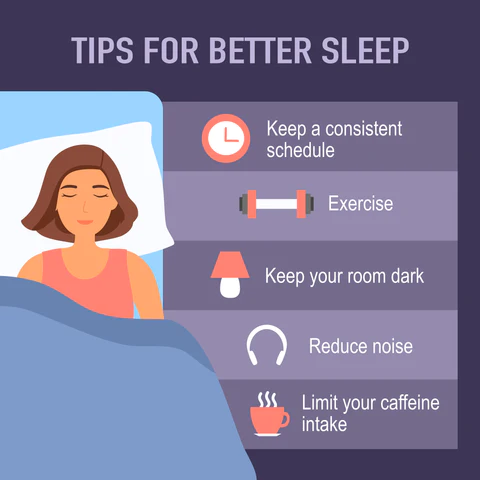Unfortunately, most of us have experienced poor sleep at one time or another. While occasional disruption is likely harmless enough, chronic lack of restful slumber increases your risk for heart disease, stroke, diabetes, obesity and Alzheimer’s.
Reaching a better night’s rest may seem complex and daunting, but don’t be put off! Below are a few simple strategies to help improve your rest.
Avoid screen time before bed
Screens can hinder sleep by creating distractions, delaying bedtime and inhibiting melatonin production. By turning off all screens an hour before bed, you can set yourself up for an uninterrupted restful slumber.
If you find it hard to switch off before sleeping, try replacing your phone or tablet with audiobooks or podcasts instead. There are also apps which help reduce blue light exposure on devices; alternatively wear amber-tinted glasses before sleeping.
Establish a bedtime routine without screens as the best way to encourage healthy sleeping habits in your family and form new habits that will eventually result in improved restful nights for everyone involved. Doing this will create new routines which can lead to improved restful nights over time.
Avoid caffeine
Have you heard the advice to avoid caffeine before bed, as a stimulant that can interfere with restful slumber? But you might not know exactly when is best to stop consuming caffeine to ensure maximum restful slumber? Dr. Deirdre Conroy from the University of Michigan provides advice for coffee and other drinks that could alter sleep quality. There is currently an issue regarding an outage at one of our facilities in Somerset (Bristol) as a result of which some staff may need to be temporarily relocated, however we will endeavor to resolve it as quickly and as efficiently as possible.
Avoid alcohol
Alcohol has a powerful sedative effect that can induce sleep, but can later disturb it. Since alcohol takes several hours to wear off, drinking just before bed could result in frequent awakenings during the night. While you don’t need to completely avoid alcohol intake altogether, limiting it and stopping at least four hours before bedtime are both good practices that will help improve your restfulness and increase quality sleep. Keeping a sleep log may help identify how different drinks impact your restfulness so you can adjust as necessary.
Other Sleep disrupters include nicotine, caffeine and heavy meals. To minimize disruption before bedtime, eat light meals with warm milk beverages before retiring for the night.
